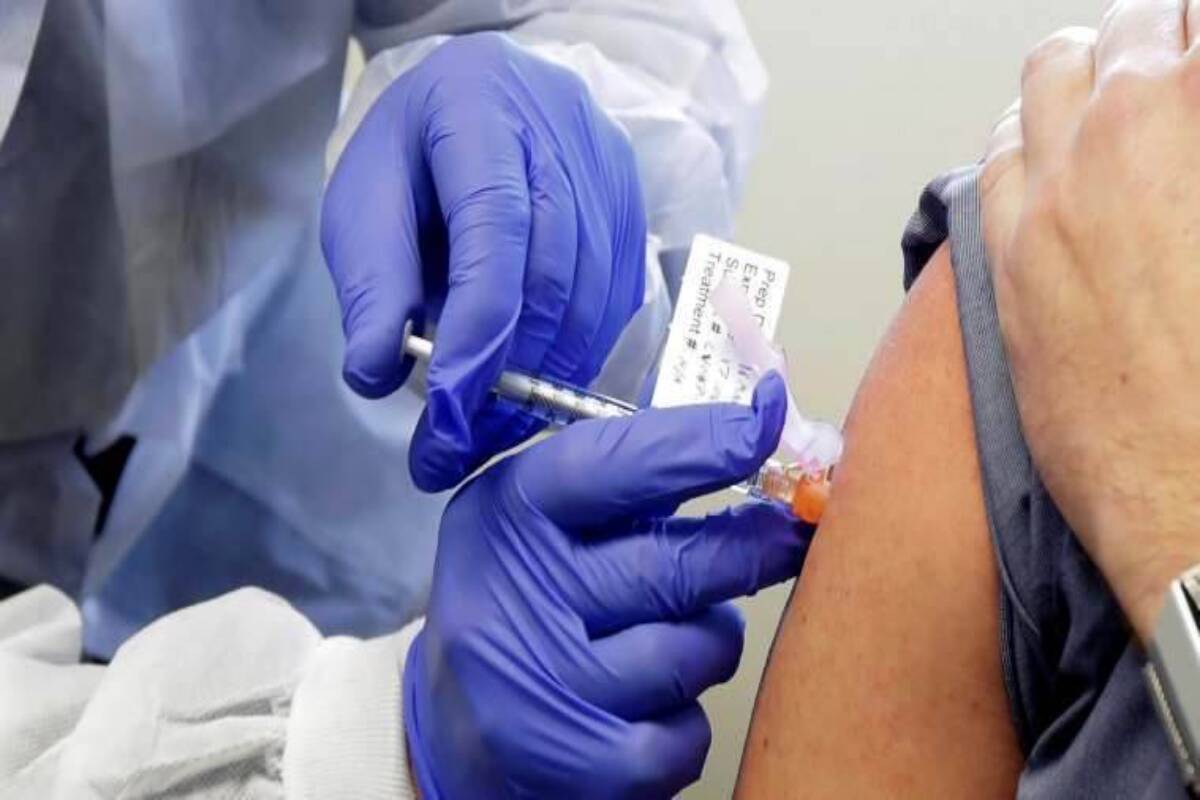COVID-19 vaccines do not stop one from getting infected but instead help in curing the disease faster and reducing its severity, said health and development economist Professor Anup Malani
He also said that reinfection can be one of the reasons behind the recent surge in cases in the country
Malani, a professor at the University of Chicago Law School and the university's Pritzker School of Medicine, has been leading a series of COVID-19 serosurveys in cities and states across India with economic development-focused think-tank IDFC
In an interview with PTI, Malani said, "I fear this is the biggest misunderstanding around India and even in other countries today. Previous infection and vaccines do not stop you from being infected. That was never how immunity worked. Instead, natural and vaccine-acquired immunity is helpful because it helps you clear the infection faster once you are infected."
"This has two benefits? it helps you avoid death or other serious health harm from the infection, and it helps reduce the probability you will infect someone else. So it is possible to be reinfected, but the harms of the infection will be lower," he said
The level of reinfection in the population depends on the prevalence of the infection and the prevalence of immunity, natural or vaccine acquired, Malani said
"The level of reinfection is driven up by more activity (like large gatherings), and down by immunity rates.? What may be going on in India is that activity recently increased at a faster rate than immunity. This is the most optimistic interpretation of the surge,? he said
Indian Council for Medical Research (ICMR) Director-General Balram Bhargava earlier this month had said that reinfection of cases is around one percent
"We have studied the data of reinfection cases in India. Globally, reinfection cases are around 1 percent,? he had said
India is battling a massive surge in COVID-19 cases
The number of new coronavirus cases hit a record daily high since the outbreak of the pandemic with 2,34,692 new infections being reported in a span of 24 hours, pushing the nationwide COVID-19 tally to 1,45,26,609, according to health ministry data updated on Saturday
Malani said there can be two possibilities behind the recent surge in cases ? one is people are not wearing masks and gathering, and the other is the emergence of new strains of the coronavirus
The first is that people are not wearing masks and gathering more. The second is that there are new strains that are more transmissible. But the question we must ask is why people are more non-compliant now? Is it that they are just tired of COVID, or they think the vaccination campaign is reducing risk -- even if they personally are not vaccinated -- or the fatality rate has fallen as more people are naturally immune,? he said
On ways to tackle the second wave, Malani said wearing masks, more testing, tracking peoples' recovery or death, and sequencing positive cases can be among the ways to handle the surge?
What is best to do in response to the surge really depends on what the explanation is for the surge. If the optimistic explanation is correct (that is activity increased faster than immunity in February and March), then the solution is that we should increase vaccination," he said
The health and development economist said raising immunity levels is better than reducing activities like gatherings as he fears that people are less compliant with or tolerant of lockdowns now
"If the pessimistic scenario holds, which is new strains have emerged and existing or vaccine immunity is less effective against them, and so they have the same or higher infection fatality rate, then we have to start first with lockdowns. But we should be smarter about them," Malani said, adding that previously, "we seemed to mainly want to stop activities"
The aim should be to stop crowding, "while contact tracing and quarantining are helpful, it also causes people to avoid being tested or reporting symptoms. This can just mask the problem", he said
On nationwide lockdown, Malani said lockdowns seem to harm the poor more than the rich
"But the new thing we've discovered is that lockdowns can cause people to move to escape them. Perhaps we will see lockdowns in Maharashtra causing people to leave the state to return to their ancestral homes in other states. This could actually increase crowding at train stations and thus, the level of infection," he said
If a national and abrupt lockdown is not possible, and I don't think it is feasible, then we need to use more intelligent strategies. Wearing masks is the easiest. We can engage in economic activity and mask, so opposition to this form of control should be less,? he said
Maharashtra is among the 12 high-burden states in the country. Delhi, Uttar Pradesh, and Chhattisgarh are also part of this group
The number of active coronavirus cases in the country has surpassed the 16-lakh mark, the health ministry's data showed
Registering a steady increase for the 38th day in a row, the tally of active COVID-19 cases has climbed to 16,79,740 in the country, accounting for 11.56 percent of its total caseload, while the national COVID-19 recovery rate has dropped to 87.23 percent
Of the fresh cases reported on Sunday, Maharashtra reported 63,729, followed by Uttar Pradesh(27,426) and Delhi (19,486), according to the data.
Source PTI

 Myths about the vaccine explained .... it cannot check infection but effectively control one with less severe effects
Myths about the vaccine explained .... it cannot check infection but effectively control one with less severe effects










.jpeg)

.jpeg)
.jpeg)

.jpeg)


.jpeg)



.jpeg)
.jpeg)
.jpeg)


.jpg)


.jpeg)
.jpeg)